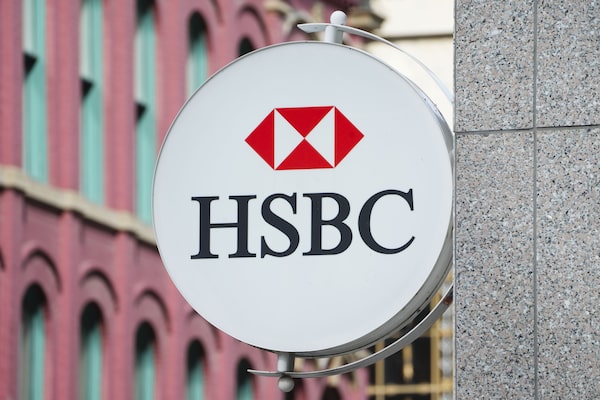
All six of Canada’s largest banks held preliminary meetings for possible bids in the auction for the Canadian arm of Britain-based HSBC Holdings Inc., but sources say two potential bidders have backed away.Sean Kilpatrick/The Canadian Press
The field of contenders to acquire HSBC Bank Canada is narrowing, with at least two major Canadian banks now out of the running.
National Bank of Canada NA-T is no longer in the auction for the Canadian arm of Britain-based HSBC Holdings Inc., according to two sources familiar with the process. Canadian Imperial Bank of Commerce CM-T is also out of the process, said a third source with direct knowledge of the bank’s position.
Bank of Montreal BMO-T is among the banks that are still pursuing HSBC Canada – a prized asset that could fetch more than $10-billion in a sale – according to a fourth source with knowledge of BMO’s participation in the auction.
The Globe and Mail is not identifying the sources because they are not authorized to discuss the confidential bidding process.
Spokespeople for HSBC, BMO, National Bank and CIBC declined to comment.
HSBC confirmed in early October that it was considering selling its Canadian unit, a profitable business with strong roots in commercial banking and a large presence in British Columbia and Ontario. All six of Canada’s largest banks held preliminary meetings to kick the tires on HSBC Canada, and the auction process has moved quickly. The Globe has reported that first-round bids were due late last week.
HSBC Canada would offer a buyer a meaningful increase in scale in the Canadian banking market. But a potential deal is fraught with challenges, some of them having to do with the sheer size of the transaction. There are also potential political problems related to competition in an already concentrated banking market.
In the auction’s early stages, CIBC and National Bank were considered by some analysts to have some of the most compelling strategic reasons to buy HSBC Canada, though each would have had to raise billions of dollars to meet the purchase price. As the fifth- and sixth-largest banks in the country respectively, the two institutions might have viewed acquiring HSBC Canada as a singular opportunity to narrow the gaps between themselves and larger rivals. And both banks would presumably have presented lesser competition concerns than their more-dominant competitors.
For National Bank, which is considered a “super-regional” bank with a stronghold in Quebec, a deal would have meaningfully extended its reach in Western Canada. And last week, Scotia Capital Inc. analyst Meny Grauman wrote in a note to clients that CIBC had “a compelling strategic case for doing this deal, especially when it comes to boosting its commercial market share.”
But when CIBC’s chief executive, Victor Dodig, was asked about the HSBC sale at a meeting of hundreds of his bank’s senior staff on Thursday, he hinted that preserving capital is important in the current climate of market uncertainty, and that the bank’s priority is still organic growth, according to a fifth source with direct knowledge of the meeting.
Analysts have pegged Royal Bank of Canada RY-T, the country’s largest bank, as an obvious front-runner, because it is the only Canadian lender that might have enough excess capital to buy HSBC Canada in cash, without raising additional funds. Toronto-Dominion Bank TD-T and Bank of Nova Scotia BNS-T could also be contenders, though both companies face hurdles in the path to a deal.
TD is still working to close two large acquisitions in the United States. It is paying US$13.4-billion to buy First Horizon Corp., and purchasing New York-based investment bank Cowen Inc. for US$1.3-billion. But TD could sell some of its US$16-billion stake in Charles Schwab Corp. SCHW-N to raise funds.
Scotiabank is in the midst of a CEO succession that stunned Bay Street by elevating a candidate from outside the banking industry. The change in leadership won’t officially take place until early next year. But the bank’s executives have expressed a desire to strengthen its presence in B.C., where HSBC already does a great deal of business.
The fact that the largest of the large Canadian banks are likely still in contention for HSBC Canada, as the smallest of the Big Six drop out, will only sharpen questions about how the government might respond to a merger.
If RBC or TD acquired HSBC Canada, the deal would increase their share of bank deposits in Canada to 24 per cent or 21 per cent respectively. That would be higher than the market share created by a theoretical merger between National Bank and any of Scotiabank, BMO or CIBC – the type of deal that is widely considered to be a political non-starter because the federal banking regulator deems the Big Six banks systemically important to Canada.
 James Bradshaw
James Bradshaw Tim Kiladze
Tim Kiladze